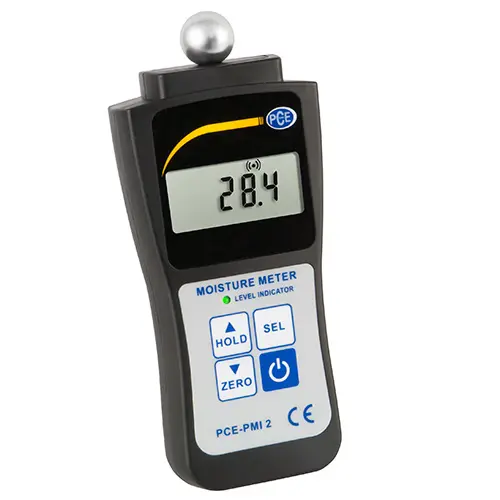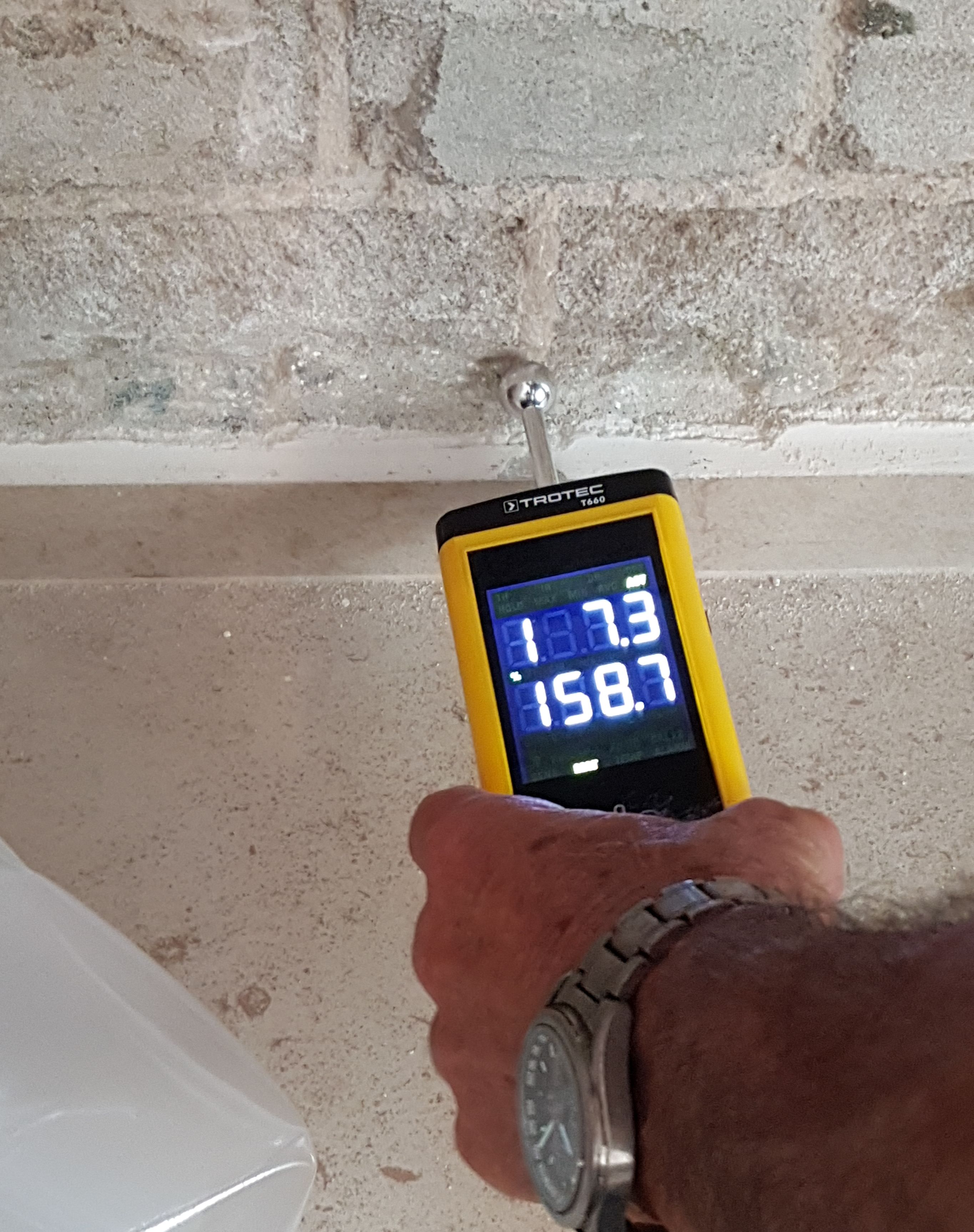Recognizing the Different Types of Moisture Meters and Their Applications
Recognizing the Different Types of Moisture Meters and Their Applications
Blog Article
The Ultimate Overview to Wetness Meters: A Comprehensive Review and How They Can Save You Money
Dampness meters serve as crucial devices in identifying and checking moisture content in products, aiding in stopping expensive damages and guaranteeing the quality of items. Understanding the nuances of different kinds of moisture meters, their applications, and the possible cost-saving benefits they offer can be a game-changer for services and professionals alike.
Kinds Of Moisture Meters
One usual type is the pin-type wetness meter, which measures the electric resistance in between 2 pins inserted into a product. Pinless wetness meters, on the other hand, use electromagnetic sensor plates to check a bigger location without causing damages to the material's surface area.

Infrared wetness meters determine the thermal homes of a material to identify its moisture content non-invasively, making them helpful for applications where pin or pinless meters may not be appropriate. Recognizing the various types of moisture meters available can help markets pick the most proper tool for their details dampness dimension demands.

Benefits of Making Use Of Dampness Meters
Dampness meters provide indispensable benefits in properly keeping an eye on and examining wetness levels in varied materials and atmospheres. One of the primary benefits of utilizing wetness meters is the avoidance of potential damage triggered by excess dampness.
Furthermore, using wetness meters can cause enhanced power performance. By determining areas with high wetness levels, such as leaks or poor insulation, changes can be made to boost energy conservation and reduce energy expenses. In agricultural settings, wetness meters play an essential duty in optimizing crop yields by making it possible for farmers to keep track of dirt dampness levels and make notified watering decisions. Overall, the advantages of using dampness meters span across various markets, providing economical options and promoting better quality assurance methods.
Exactly How to Pick the Right Wetness Meter
Selecting the suitable wetness meter involves thinking about key factors such as material compatibility, dimension range, and calibration precision. When picking a dampness meter, it's vital to make sure that the meter is suitable for the certain material you will be testing. Various materials have differing electrical residential or commercial properties that can influence dampness analyses, so selecting a meter created for your material is critical for exact outcomes. In addition, consider the dimension series of the wetness meter. Ensure that the meter can identify wetness degrees within the array required for your applications. Calibration precision is another crucial variable to bear in mind. Go with a moisture meter with trusted calibration to guarantee constant and accurate analyses. Some meters might call for periodic calibration changes, so comprehending the calibration process is essential. By carefully examining these aspects, you can select a dampness meter that fulfills your demands and provides exact moisture dimensions for your projects.
Appropriate Techniques for Moisture Meter Use

Cost Cost Savings Via Dampness Meter Applications
How can the critical usage of dampness meters lead to considerable see here now expense financial savings throughout various industries? In the farming market, dampness meters help in identifying the optimum time for gathering plants, protecting against excess or over-drying wetness that can affect the last product's quality.
Likewise, in building and construction, dampness meters aid prevent expensive damages by identifying moisture levels in structure products, such as timber or concrete, which can bring about structural issues otherwise resolved immediately. By determining issue locations early on, professionals can take rehabilitative steps to avoid considerable repair services or replacements, eventually conserving money and time.
Additionally, in the food processing market, dampness meters are crucial for monitoring item top quality and making certain compliance with safety laws. By properly determining moisture material in food products, suppliers can stop wasting, maintain freshness, and lower waste, causing substantial cost savings. In general, the critical application of dampness meters is an important financial investment that can lead to substantial expense decreases and enhanced effectiveness throughout different industries.
Final Thought
In final thought, moisture meters are important tools for spotting and gauging dampness degrees in various materials. By making use of the right wetness meter and adhering go now to proper techniques, users can efficiently avoid pricey damages triggered by excess dampness.
Moisture meters offer as indispensable tools in identifying and keeping track of moisture material in products, aiding in stopping expensive problems and making sure the top quality of products. Infrared moisture meters gauge the thermal homes of a material to establish its moisture content non-invasively, making them useful for applications where pin or pinless meters might not be appropriate.Dampness meters provide important advantages in properly keeping track of and examining moisture degrees in varied products and atmospheres. In farming setups, dampness meters play find more an important role in maximizing plant returns by making it possible for farmers to check soil dampness degrees and make notified watering choices.In final thought, dampness meters are beneficial devices for detecting and gauging dampness degrees in various materials.
Report this page